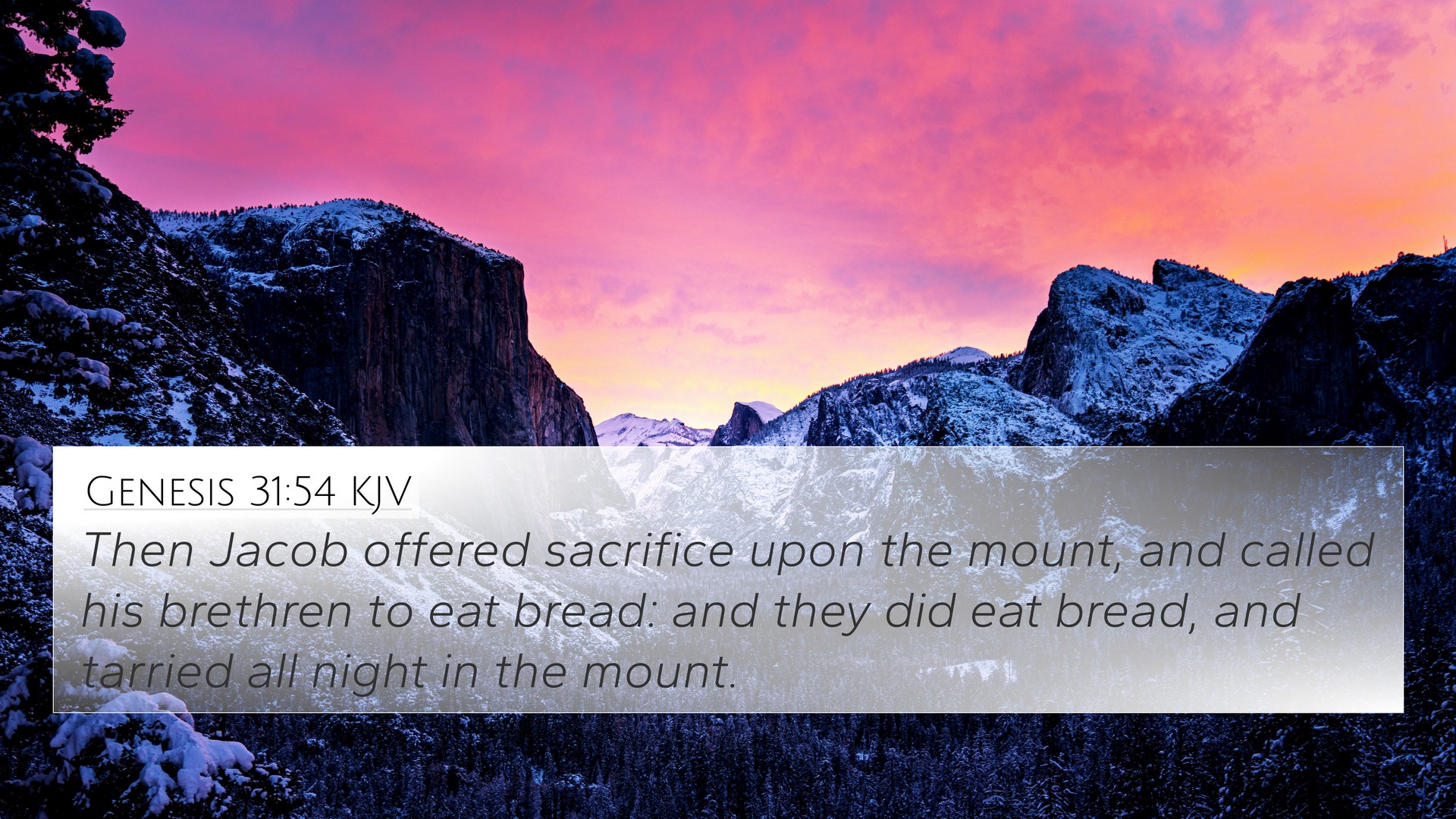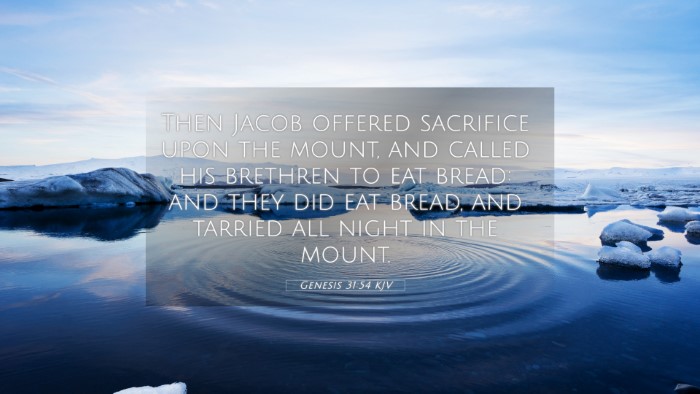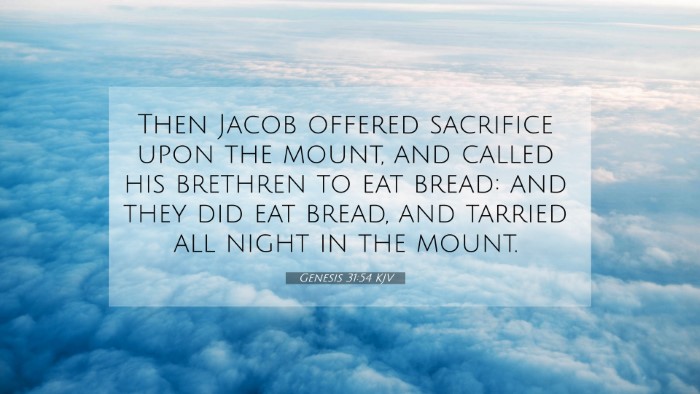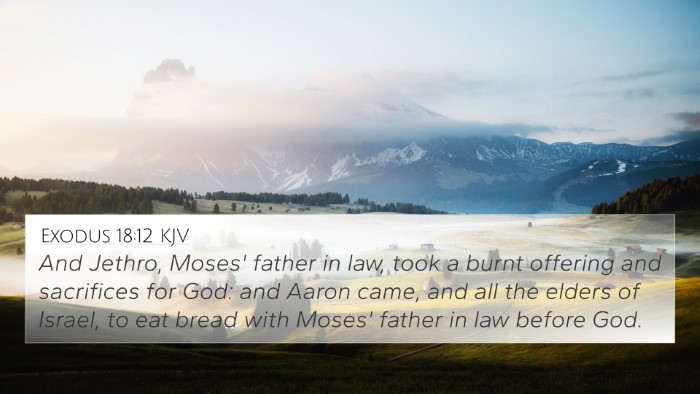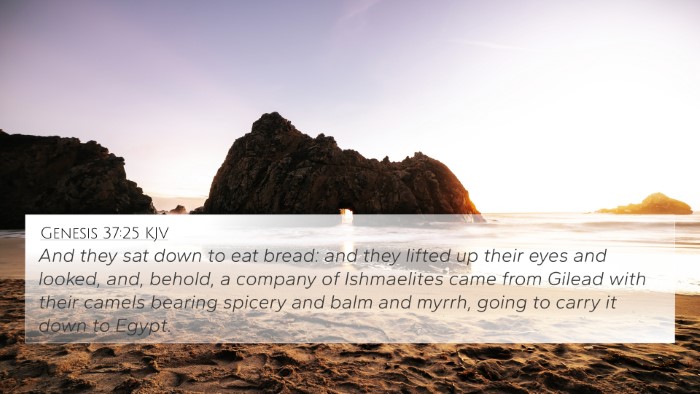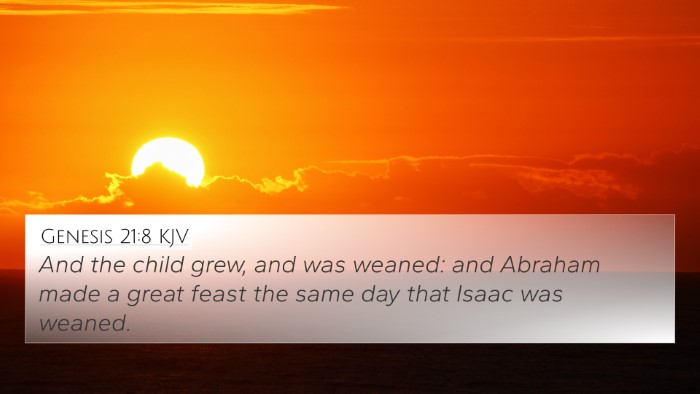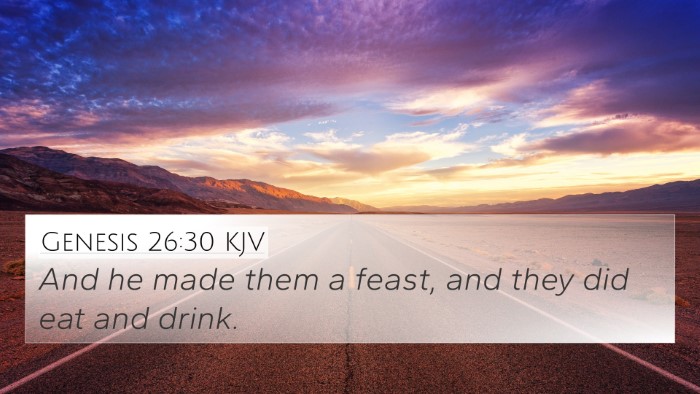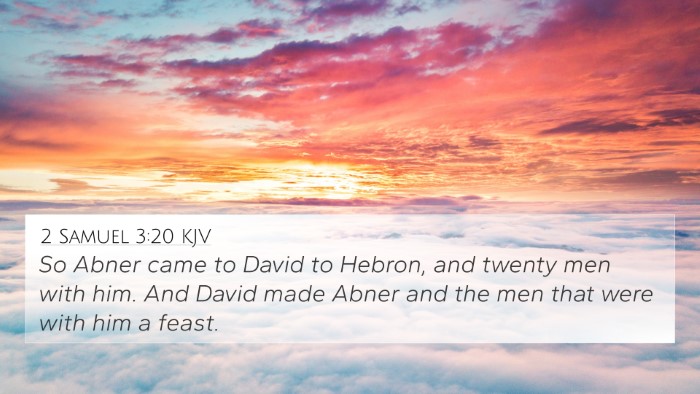Understanding Genesis 31:54
Genesis 31:54 states:
"Then Jacob offered a sacrifice on the mountain, and called his brethren to eat bread: and they did eat bread, and tarried all night in the mount."
Overview
This verse occurs in the context of Jacob's covenant with Laban, marking a turning point in their relationship after years of conflict and strife. It captures a moment of reconciliation and the establishment of a symbolic agreement between the two parties.
Commentary Insights
Matthew Henry's Commentary
According to Matthew Henry, Jacob's offering of a sacrifice signifies a solemnity and seriousness in establishing the covenant. The sacrifice represents both gratitude to God and a commitment to peaceful relations moving forward. Jacob's action shows his recognition of God's providence in delivering him from Laban’s hands. Sharing a meal serves as a sign of fellowship and agreement—highlighting the importance of communal bonds in biblical covenants.
Albert Barnes' Notes
As Albert Barnes observes, the eating of bread signifies acceptance and peace between Jacob and Laban. It is not merely a meal but a symbolic act of recognizing past grievances and moving towards amicability. This act reflects a profound transformation in Jacob's life, where he transitions from a fugitive to a patriarch secure in God's promises. This moment illustrates the importance of sacrificial acts in forging social and spiritual relationships in biblical traditions.
Adam Clarke's Commentary
Adam Clarke emphasizes the significance of the mountain where this covenant is established. Mountains in the Bible often serve as places for divine revelation and significant spiritual events. Thus, Clarke suggests that this site was chosen purposely to invoke memories of God's faithfulness and guidance. The act of tarrying all night demonstrates the gravity of the covenant and the communal bonds that were reaffirmed through the meal and sacrifice.
Thematic Bible Verse Connections
In exploring the connections between this verse and other scriptures, we find several notable cross-references that deepen our understanding:
- Genesis 26:28-29: A similar covenant is made, showcasing how divine assurance leads to peace between rival parties.
- Exodus 24:5: Sacrifices and shared meals depict agreements that invoke God's presence and blessings.
- Psalm 50:5: God regards covenant keeping, especially when it is accompanied by sacrifice, reflecting a heart willing to honor commitments.
- Matthew 26:26: The Last Supper relates to the theme of shared meals as tokens of new covenants in Christ.
- Acts 1:14: The disciples participated in shared meals after Christ's resurrection, highlighting the importance of communal faith and fellowship.
- 1 Corinthians 10:16-17: The communion of the body signifies unity among believers, akin to fellowship represented in the sacrifice.
- Luke 22:19-20: The Last Supper serves as a new covenant that parallels the themes established through Jacob and Laban.
Cross-Referencing Biblical Texts
Genesis 31:54 offers rich opportunities for cross-referencing:
- Engagement with Hebrews 7:27: The importance of sacrifices in establishing and maintaining relationships with God.
- James 5:16 links the acts of prayer and confession—a form of communal bonding akin to sharing a meal in covenant.
- 1 Peter 2:5 draws a parallel to believers as living stones, united in covenant fellowship and sacrifices.
Tools for Bible Cross-Referencing
Utilizing tools for cross-referencing can enhance the understanding of Genesis 31:54:
- Bible concordance: An invaluable resource to find relationships between verses and themes across scripture.
- Bible cross-reference guide: Allows readers to explore thematic linkages and deepen their spiritual insights.
- Cross-referencing Bible study methods: Helps in systematic exploring of scripture to uncover deeper meanings and connections.
Conclusion
Genesis 31:54 encapsulates a transformational moment for Jacob amidst divine providence and human conflict resolution. The shared meal and sacrifice serve as a poignant reminder of God's commitment to His people, the importance of reconciled relationships, and the underlying thematic wisdom present throughout the Bible.
